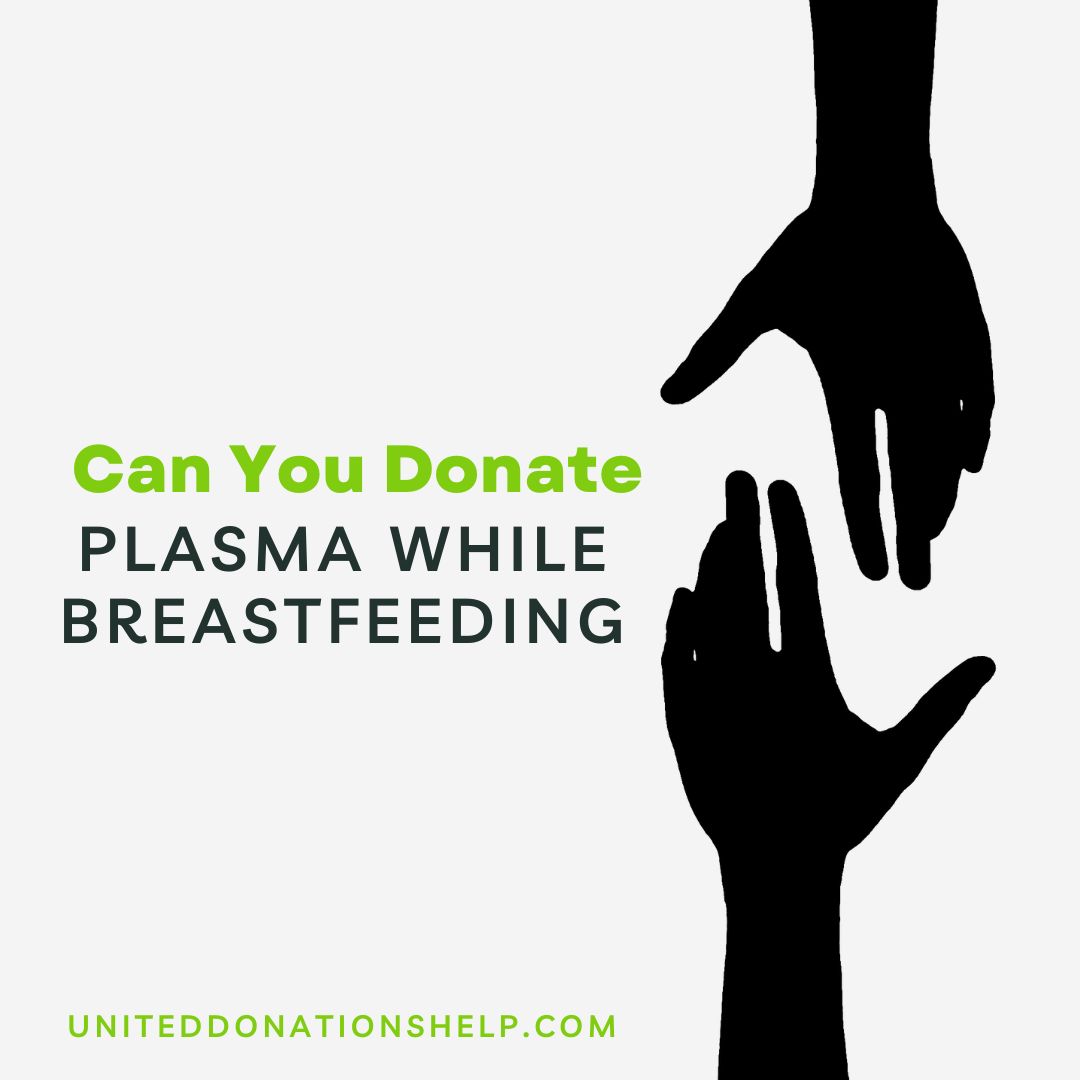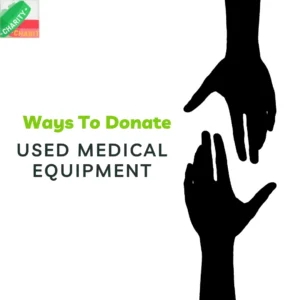Can You Donate Plasma While Breastfeeding : To answer this rising query, we have the exact and thorough answer for you. Yes, donating plasma is possible even during breastfeeding, and several moms would select this route since it is the ideal way to aid others in pocketing some extra funds. So, can you donate plasma while breastfeeding? No such evidence exists whether there are any adverse effects of donating plasma on children or breastfeeding moms.
It is extremely common to donate plasma; however, it is a highly complex process compared to donating blood. If you consider getting this done for the first time, you might have questions about what to expect. Breastfeeding moms need to know about it.
You would often have queries related to the process, and you should ensure that it is safer for you and your baby. Our post today will throw some light on answering the rising questions to aid you in making an informed decision on whether or not to donate plasma.
Furthermore, if you are keen to donate plasma while breastfeeding, it is probably the ideal thing you should do. However, there are a couple of things one should consider. Initially, it is vital to ensure that you remain well-nourished and healthier before donating plasma, you can also check Dicks Sporting Goods Donation Request.
It appears that consuming plenty of fluids and eating a well-balanced diet is the best option. It is vital to wait until your baby is at least six months of age before becoming a plasma donor. It will ensure that the body has sufficient recovery time even after childbirth that was habituated to breastfeeding.
What are the Perks of Donate Plasma While Breastfeeding?
- It aids you financially to the donors: donating plasma will pay you around $50 for each plasma extraction and a few less. The payment would travel longer to pay for the rent, food, medicine, and several other basic needs for numerous donors.
- It aids people who need medical attention: Blood plasma is often transfused into patients who suffer from burns or leukemia, along with those undergoing surgery and several other injuries.
- Enhancing health with a regular donation: Regular plasma donation and the entire blood have numerous health-related benefits to the donor, as noted by scientific studies. The stronger screening will enable the donor to know their recent health conditions and stay alert about the earliest signs of diseases.
- It allows people to help others: It helps people to help others: Individuals would often feel happier about aiding others. In the lack of monetary possessions, some individuals would locate several meaningful and satisfactory parts of lending themselves to others regarding blood and organ donors.
- The process is entirely safe: Donors often undergo rigid screening to ensure they remain in the right shape. They should never engage in harmful lifestyles like smoking, drug abuse, tattoos, etc. Lastly, it can guarantee the safety and entire health of the donors. It is a relatively safe process. So, is donating plasma while breastfeeding possible?
Overview Plasma Donation
Plasma is mainly the liquid part of the blood, comprising electrolytes, proteins, and other related elements. It builds up to over half, around 55% of your blood. Plasma is often used to treat several longer-lasting diseases. For instance, people with bleeding disorders or clotting might require the proper scheduling of plasma transfusions.
Plasma is even used during emergency medical treatments that include burn victims or even for individuals who contracted rabies. Plasma is even used under transfusions for organ donation recipients or dialysis patients. You can never control how plasma is being used, understanding that it would have the efficiency in saving people’s lives.
Why should you consider Donate Plasma While Breastfeeding?
You may consider donating plasma while breastfeeding for a couple of reasons. Initially, it is the ideal way to aid others who need plasma. Plasma is generally used for treating numerous health conditions, several of which are fatal or terminal illnesses.
Straightforwardly, plasma donation while breastfeeding can save the other person’s life. The donation aid you in making some money, and the entire process is done in an hour, and it becomes the ideal way to add on some income sitting at home nursing your baby.
Why can you not donate plasma while breastfeeding?
So, is donating plasma and breastfeeding possible together? The answer is yes; however, should you consider it? It mainly depends on a couple of factors. Although it is typically safe, there are numerous times when you should not consider donating plasma when you are breastfeeding. If you feed socks or have signs of illnesses, it is best place to donate plasma until you recover.
The other query is why you should not donate plasma if you have undergone surgery or have become pregnant. Furthermore, if you are dealing with a chronic condition through medicines, you might not be eligible for the donation. Check this with the center for plasma donation before you make an appointment.
Things to expert while donating plasma
You may often wonder about the process involved with donating plasma and breastfeeding if you have never tried it earlier. However, the initial step is to make an appointment with the local center for plasma donation. Several firms operate across Canada and the US, and you can search for the right one on Google. After you visit the center, you might have to offer a few identifications and the entire medical history. The staff will then inspect your temperature, pulse, and blood pressure.
The process of screening for donating plasma while breastfeeding is vital since it would safeguard individuals who receive this donation. Several people often have underlying medical issues. The screening will also make sure that the plasma donor is in sound health so that they can manage the potential side effects of plasma donation.
After getting screened with the attendants confirming that everything is fine, you might often get asked to sit on the reclining chair and given a needle across each arm. One of the needles gets used for drawing blood, and the other is used to return the remaining blood cells and other blood elements to the body.
The following are the three different stages involved with plasma donation while breastfeeding:
- Blood is drawn out of your arm
- The elements of the blood get separated, and the plasma is kept in a different bag.
- The remaining blood elements are transfused back into the arm.
What to eat if you plan to donate plasma while breastfeeding?
Following a healthier diet is often the ideal idea for breastfeeding moms as it would add to the vital days that lead to plasma donation while breastfeeding. However, a healthier, well-balanced meal before donating can aid in making sure that you have sufficient energy.
It can help in preventing any fainting or dizziness. It is the ideal way to consume foods rich in protein, low in fat, and high in iron. Drinking around six to eight cups of water each day before and even the day you are donating is recommended. Alcohol and caffeine are a big NO-NO.
- Ensure you avoid junk food and empty calories as it would make you feel hungry and not offer proper protein or nutrition.
- Aim at whole foods like leafy greens, veggies, and fresh fruit.
- Try including healthy fats like nuts, avocados, beans, and chia seeds.
- Consume whole grains like oatmeal, brown rice, and whole wheat bread.
- Try low-fat dairy products to improve calcium.
- Consume a lot of lean meats like low-mercury fish, chicken, and eggs.
The following are a couple of snacks to try as you plan to incorporate donating plasma and breastfeeding:
- Try overnight oatmeal and chia seeds
- Drizzle a bit of olive oil on the avocado toast
- Add your favorite seasoning to boiled eggs
- Try tuna and celery boats
- Whole grain crackers and nut butter
- Cottage cheese on toads with everything other than bagel seasoning.
Food to Avoid
- Fried foods, even French fries
- Sweets
- Pizza
What are the side effects of donating plasma?
The common side effect of donating plasma while breastfeeding is a soreness, bruising, and aching injected site. After the donation, you might even feel lightheaded, dizzy, and have headaches. These side effects are mainly warded off instantly. If you have any severe side effects like shortness of breath or fainting, call your doctor immediately.
Can I breastfeed right after I donate plasma?
Surely you can breastfeed instantly right after plasma donation while breastfeeding. Typically, breastfeeding will aid your body in replacing the plasma you had donated. You might have potential soreness or bruising around your breasts for a few days after donating. If you face any adverse effects like pain that fails to leave or engorged breasts after donating plasma and breastfeeding, contact your doctor.
What are the risks if you choose to donate plasma while breastfeeding?
A couple of risks are often linked to donating plasma while breastfeeding. However, you should often inform your staff at the plasma donating centre if you are breastfeeding due to some medications being used in this donation process that can often pass onto your breastmilk. Always speak to the doctor before donating if you have any concerns.
Can I Help If I am Unable to Donate plasma?
Although you cannot donate at the moment, you can offer them later whenever your body is prepared for it. With all being mentioned, there are numerous options for you to involve yourself if you wish to:
- Volunteer. Volunteers often associate with organizations such as American Red Cross to continue their operations. Look out for the local chances of helping organize or run blood drives.
- Offer a monetary donation. Suppose you cannot offer non-profit organizations like Red Cross or are curious about who operates the closest collection. You should enter the ZIP code in the Association for Advanced Blood and Biotherapies directories.
- Donating the cord blood. Check into donations of cord blood or the additional blood collected since delivery out of the placenta and the umbilical cord by donating plasma and breastfeeding. The cells within the cord blood have identical properties to those found across the bone marrow, which is collected easily. The treatments on the cord blood aid in strengthening the immune systems among cancer patients and several other individuals with affected immunity.
Conclusion
So, can you donate plasma while breastfeeding? Surely, you can, as it is the ideal way to aid others and earn additional funds. However, ensuring that you are a healthy fit for the donation and know what you require to undergo this process is essential. If you plan to donate, consult with your doctor, as they can assist you in deciding whether donating plasma is right. Ensure of consuming a proper meal, drink lots of fluids before donating, and rest for the day.
FAQs
1. How long after giving birth can you donate blood or plasma?
Pregnant individuals are never eligible or the right fit to donate. You should wait for around six weeks after you have given birth.
2. Is it possible to donate blood after pregnancy?
It is important for safeguarding your health and avoiding stress on you and your baby’s circulation. After giving birth, you should wait for another nine months from the delivery date, as it would allow your body to recover.
3. Is it possible to donate plasma or blood while breastfeeding?
Yes, you can easily donate plasma while breastfeeding. Several moms pick on getting this done since it is a great way to aid others while making money.
4. Why is it important to wait eight weeks before donating blood?
Plasma from your blood gets replaced in just twenty-four hours with the red cells that require four to six weeks of entire placement.
5. Is donating blood reduces the fertility rate?
There is no evidence suggesting blood donation that leads to infertility or impotence.
6. Is breast milk affected through blood transfusion?
It has been discovered that the transfusion of red blood cells is linked with the reduced rate of breastfeeding and is consistent with the finding of the haemoglobin concentration in their pre-transfusion rate.




